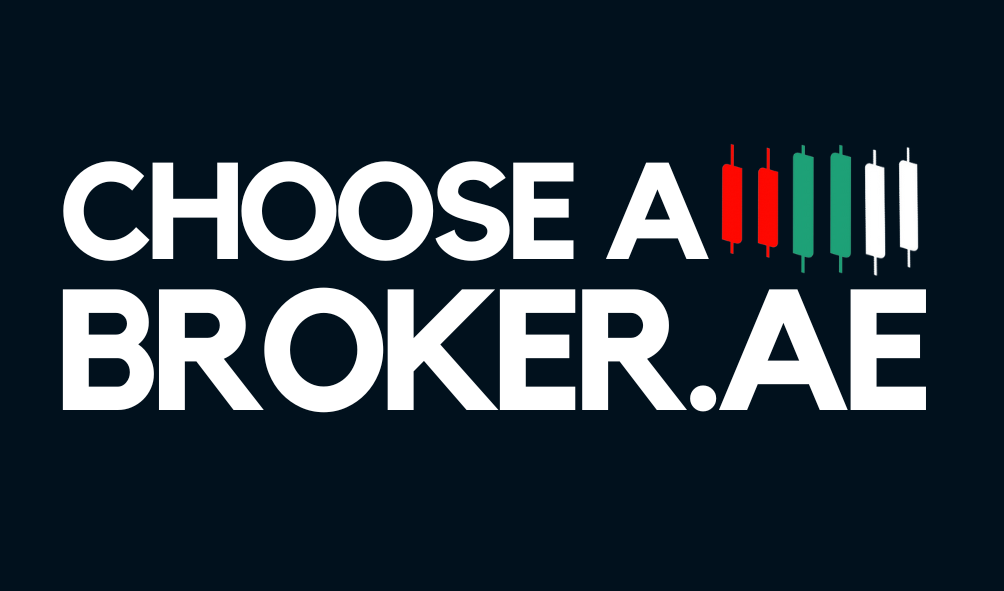Cryptocurrency has taken the world by storm, with over 425 million global users as of 2023, according to a report by Crypto.com. Whether you're a seasoned investor or a newcomer riding the crypto wave, one thing is certain: at some point, you’ll likely consider cashing out. Maybe you’ve made a tidy profit, or you want to reinvest in another project, or even pay off some bills. Whatever the reason, knowing when and how to sell your cryptocurrency is just as important as deciding when to buy.
This guide will walk you through the essential moments to consider selling, the fundamentals of assessing a crypto project, and the practical steps to convert your digital assets into fiat currency. Along the way, we’ll explore trusted platforms like Exness, XTB, and AvaTrade that can make the process smooth and secure. Let’s dive in and demystify the art of selling crypto!
This guide will walk you through the essential moments to consider selling, the fundamentals of assessing a crypto project, and the practical steps to convert your digital assets into fiat currency. Along the way, we’ll explore trusted platforms like Exness, XTB, and AvaTrade that can make the process smooth and secure. Let’s dive in and demystify the art of selling crypto!
When Should You Sell Crypto?
Timing is everything in the volatile world of crypto. Let’s explore some key scenarios when selling makes sense.
1. Lack of Development Progress
Sometimes, a project starts strong with big promises but fizzles out over time. If updates are scarce and the team isn’t delivering on their goals, it might be time to let go. Transparency and consistent progress are must-haves for a solid crypto investment.
2. Substantial Gains
If your investment has doubled, tripled, or more, it could be a good opportunity to sell and secure your profits. Sure, the project might have room to grow, but remember the golden rule: “You can’t lose money by taking profits.”
3. Reallocating Funds
Maybe your investment hasn’t performed as expected, or you’ve found a better opportunity. Selling to reallocate funds is a smart move if done thoughtfully. Just be sure the new project has strong fundamentals.
4. Negative News and Market Sentiment
Crypto is heavily influenced by news cycles. A string of bad headlines can send prices plummeting. If your project is the subject of consistent negative press, it might be time to exit before things get worse.
1. Lack of Development Progress
Sometimes, a project starts strong with big promises but fizzles out over time. If updates are scarce and the team isn’t delivering on their goals, it might be time to let go. Transparency and consistent progress are must-haves for a solid crypto investment.
2. Substantial Gains
If your investment has doubled, tripled, or more, it could be a good opportunity to sell and secure your profits. Sure, the project might have room to grow, but remember the golden rule: “You can’t lose money by taking profits.”
3. Reallocating Funds
Maybe your investment hasn’t performed as expected, or you’ve found a better opportunity. Selling to reallocate funds is a smart move if done thoughtfully. Just be sure the new project has strong fundamentals.
4. Negative News and Market Sentiment
Crypto is heavily influenced by news cycles. A string of bad headlines can send prices plummeting. If your project is the subject of consistent negative press, it might be time to exit before things get worse.

Find out more about AvaTrade in our comprehensive AvaTrade review, designed specifically for UAE traders!
Cryptocurrency Fundamentals to Evaluate
Before making any investment decisions, you need to evaluate a project’s fundamentals. Here’s what to look for:
- The Team Behind the Project: A strong, credible, and transparent team is essential. Do your research on their past achievements.
- Real-World Application: A good crypto project solves real problems. If its only goal is to exist as a cryptocurrency, it’s worth reconsidering.
- Demand for the Project: A clear mission and achievable vision drive demand.
- Unique Technology: Is this project doing something innovative? Or is it just another imitation?
Examples of Cryptocurrency Use Cases
Let’s take a quick look at some projects and their unique features:
- Bitcoin: The original crypto. While improvements are being made, much of its value comes from its hype and market status.
- Ethereum: Known for powering Web3 applications and its versatile blockchain.
- XRP: Aimed at providing efficient payment solutions for banks and financial institutions.
How to Sell Cryptocurrency
Now that you know when to sell, let’s dive into how to sell your crypto effectively. Here are some popular methods:
1. Using Centralized Exchanges
Centralized exchanges like Exness, XTB, and AvaTrade are great places to sell your cryptocurrency. These platforms make it easy to create an account, deposit your crypto, and convert it to fiat.
Steps:
Why Exness, XTB, and AvaTrade?
2. Decentralized and Peer-to-Peer Platforms
Decentralized and P2P platforms like Uniswap and LocalBitcoins allow you to trade directly with buyers. While these offer more privacy, they require extra caution and technical know-how.
3. Selling Through Wallet-Based Features
Some wallets, like Exodus or Trust Wallet, let you sell directly from the app. It’s a convenient option but might not offer the best rates.
4. Swapping for Another Cryptocurrency
If your exchange doesn’t allow direct fiat withdrawals, you can swap your crypto for a stablecoin like USDT and then cash out. This method might involve additional fees but offers flexibility.
1. Using Centralized Exchanges
Centralized exchanges like Exness, XTB, and AvaTrade are great places to sell your cryptocurrency. These platforms make it easy to create an account, deposit your crypto, and convert it to fiat.
Steps:
- Sign up and complete the KYC process.
- Deposit your crypto into your account.
- Place a sell order (limit or market).
- Withdraw your funds to your bank account.
Why Exness, XTB, and AvaTrade?
- They’re trusted platforms known for their reliability, competitive fees, and user-friendly interfaces—perfect for beginners and seasoned traders alike.
2. Decentralized and Peer-to-Peer Platforms
Decentralized and P2P platforms like Uniswap and LocalBitcoins allow you to trade directly with buyers. While these offer more privacy, they require extra caution and technical know-how.
3. Selling Through Wallet-Based Features
Some wallets, like Exodus or Trust Wallet, let you sell directly from the app. It’s a convenient option but might not offer the best rates.
4. Swapping for Another Cryptocurrency
If your exchange doesn’t allow direct fiat withdrawals, you can swap your crypto for a stablecoin like USDT and then cash out. This method might involve additional fees but offers flexibility.

Looking to learn more about XTB? Read our full XTB review where we discuss the broker's offering in detail.
Factors to Consider Before Selling
Here are a few things to keep in mind when you’re ready to sell your crypto:
- Timing the Sale: Watch the market and sell during favorable conditions.
- Fees and Costs: Every method comes with fees. Centralized exchanges like Exness, XTB, and AvaTrade offer transparent fee structures, so you know what to expect.
- Tax Implications: Remember, profits are subject to taxes. Consult a tax advisor if needed.
- Security: Use reputable platforms with robust security measures.
- Transaction Limits: Check withdrawal limits, especially for large amounts.
Tips for Navigating the Volatile Crypto Market
- Monitor Development Progress: Stay informed about your project’s updates.
- Set Investment Goals: Define when to sell based on your financial objectives.
- Stay Informed: Keep an eye on market trends and news cycles.
- Avoid Emotional Decisions: Stick to your strategy and avoid acting on FOMO or panic.

Want to find out more about Exness? Check out our full Exness review where we discuss the broker's offering in detail.
Conclusion
Selling cryptocurrency doesn’t have to be a daunting process. Whether you’re motivated by substantial gains, shifting market conditions, or the need to reallocate funds, the key is making informed decisions. By understanding the fundamentals of crypto projects—like the development team, real-world applications, and market demand—you can better assess when to sell and which assets to keep.
When it comes to how to sell, you have plenty of options. Centralized exchanges like Exness, XTB, and AvaTrade provide reliable and user-friendly platforms to convert your crypto to fiat. Decentralized platforms, wallet-based features, or crypto swaps offer flexibility, though they may require extra research and caution.
Don’t forget to consider crucial factors like fees, tax implications, and market timing before finalizing your sale. Staying informed and sticking to a clear investment strategy will help you navigate the crypto market with confidence.
Ultimately, the decision to sell is personal and depends on your goals, market trends, and risk tolerance. With the knowledge and tools shared in this guide, you’ll be better equipped to make the most of your cryptocurrency investments—whether you're cashing out today or holding for tomorrow.
When it comes to how to sell, you have plenty of options. Centralized exchanges like Exness, XTB, and AvaTrade provide reliable and user-friendly platforms to convert your crypto to fiat. Decentralized platforms, wallet-based features, or crypto swaps offer flexibility, though they may require extra research and caution.
Don’t forget to consider crucial factors like fees, tax implications, and market timing before finalizing your sale. Staying informed and sticking to a clear investment strategy will help you navigate the crypto market with confidence.
Ultimately, the decision to sell is personal and depends on your goals, market trends, and risk tolerance. With the knowledge and tools shared in this guide, you’ll be better equipped to make the most of your cryptocurrency investments—whether you're cashing out today or holding for tomorrow.
FAQs on Selling Cryptocurrency
1. How do I know when to sell my crypto?
Knowing when to sell your crypto depends on several factors, including your financial goals, market conditions, and the performance of the project you’ve invested in. Key indicators include achieving significant gains, encountering a lack of development progress in the project, or facing a streak of negative news. Always evaluate the fundamentals of the project and your investment strategy before making a decision.
2. Should I sell or keep crypto?
The decision to sell or keep crypto depends on your investment objectives. If you’ve reached your financial goals or need liquidity, selling might make sense. On the other hand, if you believe in the long-term potential of the project and can handle market volatility, holding might be a better option. Consider your risk tolerance and whether the asset aligns with your portfolio’s balance.
3. Will crypto rise again in 2025?
While no one can predict the future with certainty, many analysts and industry experts anticipate continued growth in the cryptocurrency market by 2025. Factors such as increased adoption of blockchain technology, advancements in Web3, and potential regulatory clarity could contribute to the market's upward trajectory. However, crypto remains volatile, so approach predictions cautiously and do your own research.
4. How long should you hold on to crypto?
The holding period for cryptocurrency depends on your investment strategy. Long-term investors may hold for years to ride out market fluctuations and capitalize on future growth. Short-term traders may sell within days or weeks based on market trends. Assess your financial goals, the project’s potential, and your tolerance for risk to determine the right holding period for you.
5. Do you sell crypto when it’s high or low?
The goal is to sell high and buy low, but timing the market perfectly is difficult. Selling when the market is high can help lock in profits, while selling during a low might be necessary to cut losses or reallocate funds. Evaluate market conditions, your financial situation, and the potential for future growth before deciding.
6. How long should I wait before selling my crypto?
The waiting period before selling depends on your strategy and the project’s performance. If you’re investing for long-term growth, you may wait years, monitoring the project’s fundamentals and market conditions. If you’re trading short-term, you might sell within days or weeks based on price movements. Let your goals guide your timing, and avoid impulsive decisions based on market noise.
Knowing when to sell your crypto depends on several factors, including your financial goals, market conditions, and the performance of the project you’ve invested in. Key indicators include achieving significant gains, encountering a lack of development progress in the project, or facing a streak of negative news. Always evaluate the fundamentals of the project and your investment strategy before making a decision.
2. Should I sell or keep crypto?
The decision to sell or keep crypto depends on your investment objectives. If you’ve reached your financial goals or need liquidity, selling might make sense. On the other hand, if you believe in the long-term potential of the project and can handle market volatility, holding might be a better option. Consider your risk tolerance and whether the asset aligns with your portfolio’s balance.
3. Will crypto rise again in 2025?
While no one can predict the future with certainty, many analysts and industry experts anticipate continued growth in the cryptocurrency market by 2025. Factors such as increased adoption of blockchain technology, advancements in Web3, and potential regulatory clarity could contribute to the market's upward trajectory. However, crypto remains volatile, so approach predictions cautiously and do your own research.
4. How long should you hold on to crypto?
The holding period for cryptocurrency depends on your investment strategy. Long-term investors may hold for years to ride out market fluctuations and capitalize on future growth. Short-term traders may sell within days or weeks based on market trends. Assess your financial goals, the project’s potential, and your tolerance for risk to determine the right holding period for you.
5. Do you sell crypto when it’s high or low?
The goal is to sell high and buy low, but timing the market perfectly is difficult. Selling when the market is high can help lock in profits, while selling during a low might be necessary to cut losses or reallocate funds. Evaluate market conditions, your financial situation, and the potential for future growth before deciding.
6. How long should I wait before selling my crypto?
The waiting period before selling depends on your strategy and the project’s performance. If you’re investing for long-term growth, you may wait years, monitoring the project’s fundamentals and market conditions. If you’re trading short-term, you might sell within days or weeks based on price movements. Let your goals guide your timing, and avoid impulsive decisions based on market noise.



